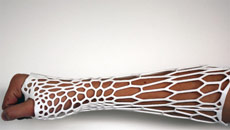Apart from late-night parties, good night's sleep and some real action, the time between midnight to 4 a.m. is also known for another thing - suicide.
According to researchers, suicides are far more likely to occur between midnight and 4 a.m. than during the daytime or evening.
“This appears to be the first data to suggest that circadian factors may contribute to suicidality and help explain why insomnia is also a risk factor for suicidal ideation and behaviour," said Michael Perlis, an associate professor at University of Pennsylvania in Philadelphia.
"The results suggest that not only are nightmares and insomnia significant risk factors for suicidal ideation and behaviour, but just being awake at night may in and of itself be a risk factor for suicide," he added.
Results show that the mean suicide rate per hour was 10.27 percent after midnight, peaking at 16.27 percent between 2 a.m. and 2:59 a.m.
In contrast, the mean suicide rate per hour was 2.13 percent between 6 a.m. and 11:59 p.m.
When six-hour time blocks were examined, the observed frequency of suicide between midnight and 5:59 a.m. was 3.6 times higher than expected, researchers noted.
A total of 35,332 suicides were included in the analysis.
“An important implication of the study is that the treatment of insomnia may be one way to reduce suicide risk,” Perlis emphasised.
The research was published in an online supplement of the journal Sleep.






